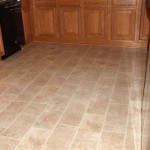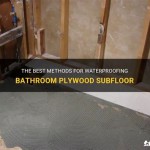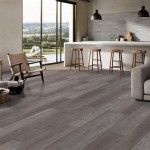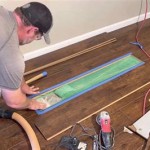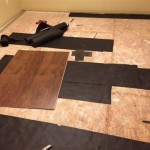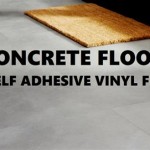Is Vinyl Plank Flooring Waterproof? Good for Basements?
Vinyl plank flooring has become increasingly popular in recent years due to its durability, affordability, and stylish appearance. One of the most important considerations when choosing flooring for a basement is its ability to withstand moisture. In this article, we will explore the waterproof capabilities of vinyl plank flooring and its suitability for basements.
What is Vinyl Plank Flooring?
Vinyl plank flooring is a type of luxury vinyl flooring that resembles hardwood or stone tiles. It consists of several layers, including a durable wear layer, a decorative layer, and a backing layer. The top layer is made of vinyl, which is a synthetic material known for its resistance to water and wear.
Is Vinyl Plank Flooring Waterproof?
Yes, most vinyl plank flooring is considered waterproof. The vinyl top layer and the tight-fitting seams create a moisture-resistant barrier that prevents water from seeping through. This makes vinyl plank flooring an excellent choice for areas prone to moisture, such as basements and kitchens.
Types of Vinyl Plank Flooring
There are two main types of vinyl plank flooring:
- Solid Vinyl Plank (EVP): EVP flooring is made from a solid piece of vinyl, making it highly durable and waterproof.
- Engineered Vinyl Plank (EVP): EVT flooring has a multi-layer construction, including a core layer, a vinyl layer, and a backing layer. It is generally less expensive than EVP flooring but may have slightly reduced waterproof capabilities.
Suitability for Basements
Vinyl plank flooring is an ideal choice for basements due to its:
- Waterproof Qualities: Its waterproof surface prevents moisture damage, a common problem in basements.
- Durability: Vinyl plank flooring is highly resistant to scratches, stains, and wear, making it suitable for high-traffic areas.
- Comfort: Its cushiony underlayment provides comfort and reduces noise.
- Style: Vinyl plank flooring is available in a wide range of colors and styles, allowing you to create the desired aesthetic.
Installation Considerations
When installing vinyl plank flooring in a basement, it is crucial to ensure proper preparation and installation techniques:
- Vapor Barrier: Install a vapor barrier under the flooring to prevent moisture from rising through the subfloor.
- Moisture Test: Conduct a moisture test before installation to ensure the subfloor is dry.
- Expansion Gap: Leave an expansion gap around the perimeter of the room to allow for movement.
Conclusion
Vinyl plank flooring is an excellent choice for basements due to its waterproof capabilities, durability, comfort, and style. Its ease of installation and maintenance make it a practical and long-lasting flooring solution. By following proper installation guidelines and choosing a high-quality product, you can enjoy a beautiful and waterproof floor in your basement for years to come.

What Is The Best Flooring For Basements Get Pros And Cons

Vinyl Plank Flooring On Concrete Basement Pros Cons

Lvt Vs Carpet What S Better For A Basement

Vinyl Plank Flooring Installation Basement Remodel Before And After

Choosing The Right Vinyl Flooring For Your Basement

Is Vinyl Lvp Laminate Plank Flooring Good For A Basement

Vinyl Plank Flooring On Concrete Basement Pros Cons
Pros And Cons Of Luxury Vinyl Flooring In Basements

The Best Flooring For Basement Renovations Guide Reallyfloors America S Est Hardwood

Is Vinyl Plank Flooring Waterproof Twenty Oak
See Also
